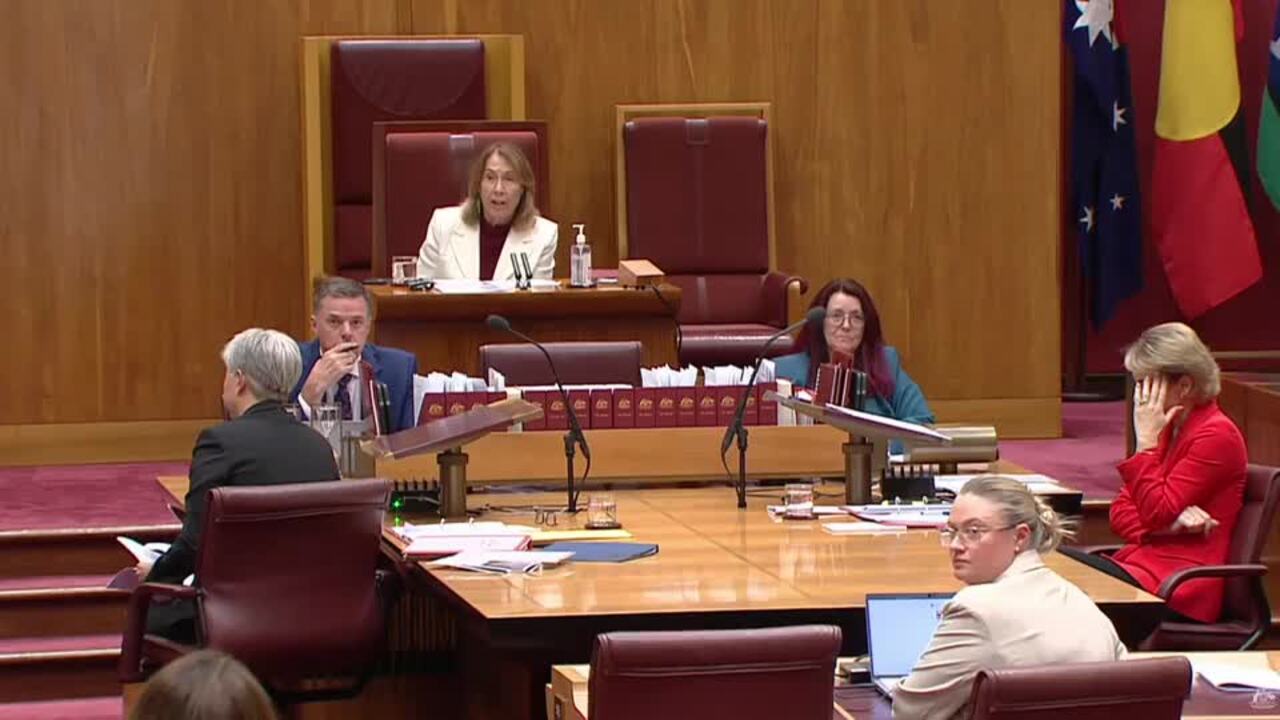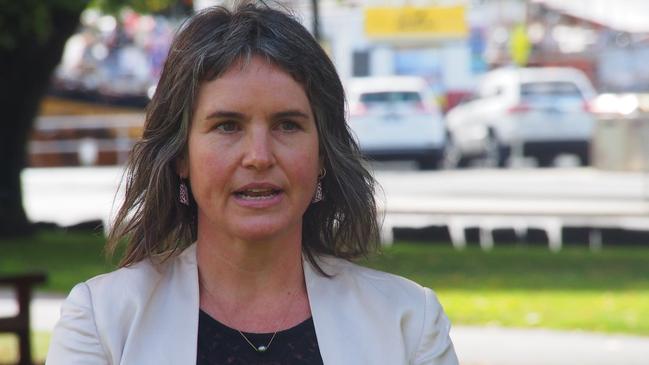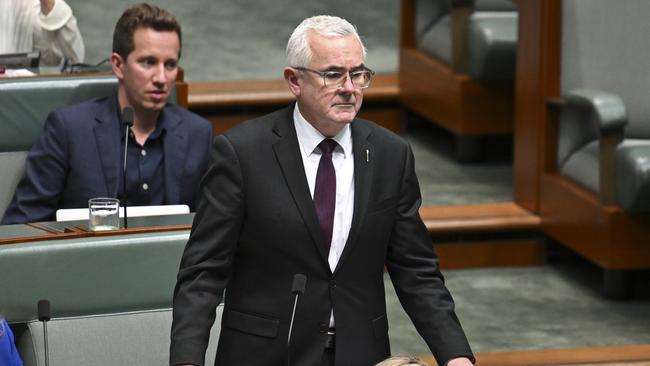Dead fish are a huge talking point in Tasmania, especially dead Tasmanian farmed salmon. We know this because South Australian Greens senator Sarah Hanson-Young produced a large dead Tasmanian salmon into the senate from under her desk on Wednesday and waved it around during Question Time, calling the dead fish, “a rotten, stinking extinction salmon.”
It’s acts like this that killed vaudeville. I’m just glad the fish was dead. It might otherwise have died of shame.

The dead fish cabaret moved from the provincial to the global when Hollywood actor Leonardo DiCaprio took to Instagram to tell his 60 million followers to urge state and federal governments to “shut down destructive industrial non-native salmon farms” and save the endangered Maugean skate, an endemic species found only in the estuarine waters of Macquarie Harbour and Bathurst Harbour in south western Tasmania.
Australians might be wondering what on Earth is going on.
The Greens et al got rolled in the parliament this week when Labor and the Coalition voted for amendments to the Environment Protection and Biodiversity Conservation Act (EPBC). These changes are intended to remove provisions that allow any environment minister to reconsider salmon farming in Macquarie Harbour. Tuesday’s Budget set aside $3 million to establish a captive breeding program for the Maugean skate.
The Greens position, like a number of members on the Senate crossbench, and Tasmnian independent MHR Andrew Wilkie, is that farmed Salmon cause environmental mischief due to a nasty little, in fact microscopic bacteria known as Rickettsia which is part of a bacterial family known as P. Salmonis. It is a genuine position and I have some sympathy for it while acknowledging the jobs and food the industry brings to the table.
Scorned, the Greens and their fish-loving crossbenchers have departed from genuine environmental concerns and the importance of biodiversity, moving onto headlining screaming hints that Big Dead Fish is actually poisoning consumers by negligence or deliberate action.
Are we mere humans subject to a health risk from “rotting, stinking extinction salmon“? Is it time for wagons to roll down the nation’s streets, bells clanging, exhorting us to bring out our dead?

Eloise Carr, Tasmanian director of the progressive think tank, the Australia Institute, called for further investigation. “There’s been little to no reassurance that those diseased fish won’t end up on supermarket shelves,“ she said. ”I think people should be very concerned if they’re still eating salmon.“
Andrew Wilkie added to the fear, saying, “A lot of consumers want to eat salmon, they like salmon, but they want to know it’s healthy. At the moment, they have no confidence it’s healthy. I certainly won’t be buying any more salmon until I can have some confidence it’s healthy and sustainably produced.”
Wilkie, the MP for Clark, and Peter George, an independent candidate in the neighbouring seat of Franklin and an anti-salmon farm campaigner, held a press conference outside the Tasmanian Parliament, where Wilkie produced some old documents from the salmon farming company, Huon which showed that staff were instructed that “in any large mortality event, as many fish as possible should be recovered for harvest and processing” and that “any fish in which the gills still bleed is potentially recoverable.”
A Huon company spokesperson responded by saying the documents were ten years old and produced under different management. Salmon Tasmania chief executive Luke Martin said the state’s industry “only harvests live fish for human consumption”.
Nevertheless, news networks ran the scare. SBS whacked up a headline full of question marks. That article and others, including from the ABC did their best to be impartial, calling on experts and authorities for their comments.
“There are many, many diseases, animal diseases, human diseases, and often those diseases are specific for the particular animal or human and they don’t always cause an illness in a different species,” said Cathy Moir, a food microbiologist at the CSIRO.

Tasmania’s Department of Natural Resources and Environment has previously said the bacteria didn’t pose a “human or animal health, or food safety risk”.
But in this age of disinfo, was it enough? Maybe these boffins are lying liars who lie because they are in the thrall, if not the pocket, of Big Dead Fish?
It took me precisely ten seconds on a Google search to quash the nonsense around dead fish and hinted-at human poisonings and then perhaps another 20 minutes to read a publication from the US Centre for Disease Control and Prevention.
It wasn’t a study open for peer review. The CDC entry is a textbook of infectious disease in fish, written for microbiologists and chemists. Volume 3, Number 2 is entitled Rickettsia: An Emerging Group of Pathogens in Fish.
While that textbook was published more than 20 years ago, there is a detailed history of Rickettsia bacterial infections in farmed fish going back to the 1930s and irrefutable evidence that these infections will spread to other fish species.
But here’s the thing: a solitary paragraph at the conclusion of the first section of the textbook reads: “There is no indication that P. salmonis or other rickettsial pathogens of fish cause disease in humans or other warm blooded animals. We speculate that the optimum temperature of 15°C to 18°C with no growth at 25°C and above prevents P. salmonis from becoming established in warm-blooded animals.”
To biologists and chemists, it was almost an afterthought. Alas, not so for some of our politicians keen for a look-at-me moment on the cusp of an election campaign.
Rickettsia and its genus P. Salmonis are aquatic bacteria that cannot survive in temperatures on or above 25 degrees Celsius while we humans generally get about at 37 degrees Celsius. Even eating raw dead fish at room temperature will see the bacteria shuffle off this mortal coil.
In the fake campaign stakes, Wilkie et al have engaged in a nasty little scare campaign designed to create unnecessary fear. It’s quite disgraceful, morally bankrupt conduct that took just 20 minutes to debunk. Surely, this nonsense will come to an end now that the fake campaign has come to an end. All right, I can hear you. Stop laughing.







And we’re off. An election on May 3. If there is cause for celebration, it is only that the fake election campaign is over as we move into the authentic. It is perhaps a matter of moving to a dead cat bounce (in polling terms a spike that is not sustained) from dead fish.